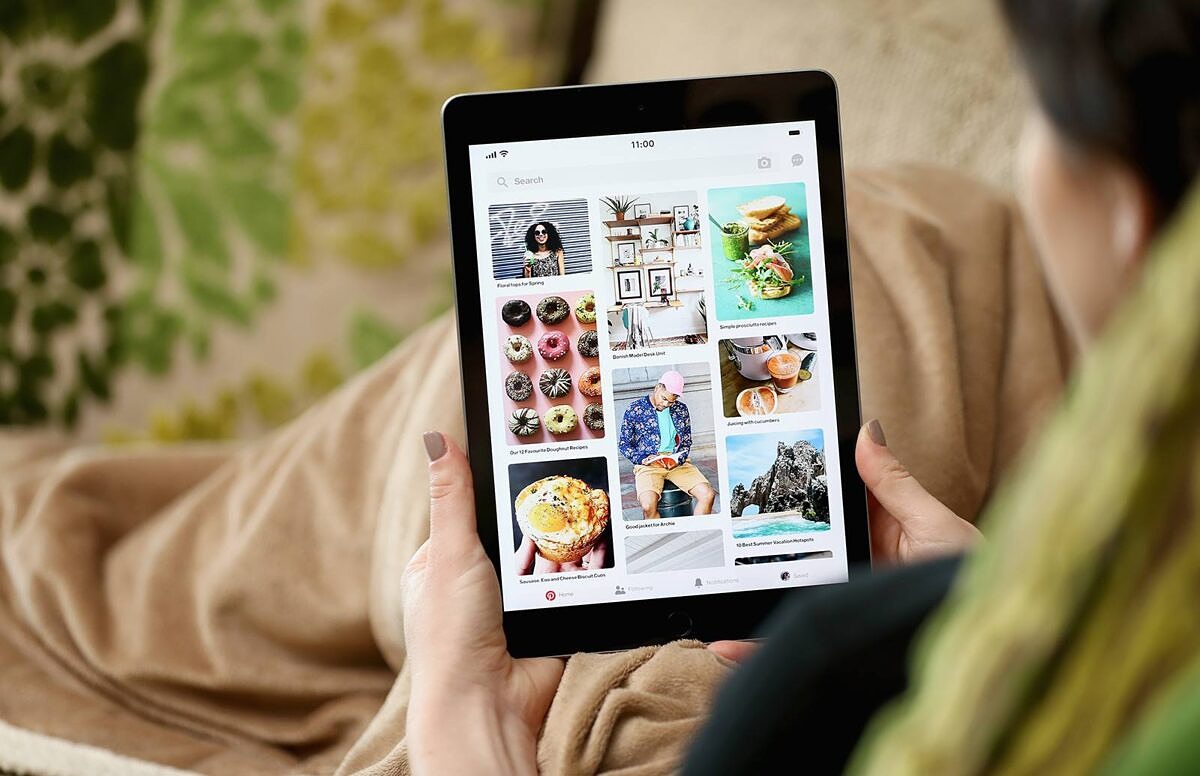The Pinterest Mindset and how to decode it.
Nikos Kotalakidis, Country Manager DACH at Pinterest tells us about user behavior, trust and the future of Pinterest in this DMEXCO interview.

Nikos, at DMEXCO 2021 you emphasized Pinterest’s ambition for a kinder Internet. Please explain what’s behind that idea.
We take responsibility for the wellbeing of our users on Pinterest and proactively design our policies and our product in a way that it supports, encourages and inspires people to create the life they love. We just recently launched the product section Compassionate Search, which is a selection of activities for mental wellbeing, developed in collaboration with global health experts. We also banned weight-loss ads from Pinterest this year to avoid unhealthy body images. We continuously review our policies and the needs of our users to keep Pinterest a kind and inspiring place.
Pinterest has always focused on clear community guidelines to prevent abuse of the platform. How important are these rules for Pinterest’s success?
Pinterest is one of the last positive corners of the internet and that’s what our Pinners value about us. They have always come to Pinterest to get inspired. They tell us that on Pinterest they can be themselves and free of validation or judgement. We have also found in a study that Pinners are more likely to remember, trust and shop from brands they see in positive environments. So it literally pays to be positive.
As we are evolving to become a place for inspiring Creators we are very deliberate in making sure that interactions on Pinterest remain positive, inclusive and respectful. Therefore we ask Creators to agree to our Creator Code with guidelines for how to design inspiring content before they are able to create Idea Pins. We have also introduced Comment Code, which pops up before someone posts a comment to remind them about the guidelines.
Do you think that social platforms have a growing responsibility to protect its users from malicious and inappropriate content and offer them a space of positivity?
Yes, I do think that platforms have a responsibility to create environments that let people feel empowered, inspired and encouraged. To say it with the words of Pinterests co-founder Evan “If you’re building pipes, you have to make sure they don’t carry sewage, that they’re carrying clean water. In a few years the idea that emotional outcomes matter in internet services will be so obvious to companies.”
Have you experienced a change in user behaviour during the pandemic? And if so: do you expect these changes to stay?
During the Pandemic we have hit all-time engagement highs with people looking for inspiration for how to adjust to the new situations, picking-up new hobbies and planning for post-pandemic life. What will stick are changes in shopping behavior towards a more mindful and sustainable approach to consumption. We have seen searches for sustainable living as well as supporting small businesses continuously increase over the past months.
Earlier this year Pinterest presented a survey describing six personas of typical Pinterest users. What do they have in common, what makes them all use Pinterest?
While every user might have individually different interests, passions or behaviors on Pinterest, they are all united in their quest for inspiration and ideas to create a life they love. People come to Pinterest to discover ideas and to take action on those ideas. Unlike on other platforms, people are on Pinterest for themselves. They browse, search, watch, shop and plan for their own future. And they value and appreciate Pinterest as a positive place where they feel welcome and safe to express themselves. This is also an incredibly valuable mindset and moment for brands to reach their audiences in.
Having in mind these six personas: what kind of companies should engage in Pinterest for finding future customers? How would you describe Pinterest’s USP?
People use Pinterest to create and plan for every area of their lives. So any brand that has a product or service to offer that helps people in their everyday lives can reach their audience on Pinterest.
What is special on Pinterest is the Mindset. Brands can reach their target group when they are positive, intentional and thinking about what to do or buy next. They can also reach them much earlier than on other platforms, when they haven’t made up their mind yet about which brand and product to buy. Shopping on Pinterest is not just about the purchase, but all the moments that lead up to it. With that Pinterest reflects all phases of the marketing funnel from awareness to consideration to conversion.
What can users and partners expect from Pinterest in 2022?
We have just announced a suite of new Creator and Pinner products that will put inspiring Creators front and center on Pinterest and allow Pinners to engage with them and their inspiring ideas. We are evolving our product to become the home of a new generation of creators that is looking for more than just likes, but for meaningful and sustainable engagement. We are increasingly introducing more and new ways for creators to monetize their content and presence on Pinterest, and to easily collaborate with brands. More about those exciting updates can be found here.





